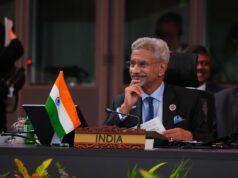The Panama Canal Authority on Wednesday dismissed the US State Department’s claim that American government vessels could cross without fees, potentially escalating tensions after President Donald Trump threatened to reclaim control of the canal.
The Panama Canal Authority, an autonomous agency overseen by the Panamanian government, said in a statement that it had not made any changes to charge fees or rights to cross the canal, adding its statement was directly in response to the US claims.
The U.S. State Department had said earlier in the day that Panama’s government had agreed to no longer charge crossing fees for U.S. government vessels, in a move that would save the U.S. millions of dollars a year.
“With total responsibility, the Panama Canal Authority, as it has indicated, is willing to establish a dialogue with relevant U.S. officials regarding the transit of wartime vessels from said country,” the canal authority responded.
Trump’s Focal Point
Panama has become a focal point of the Trump administration as the president has accused the Central American country of charging excessive rates to use its trade passage, one of the busiest in the world.
“If the principles, both moral and legal, of this magnanimous gesture of giving are not followed, then we will demand that the Panama Canal be returned to us, in full, and without question,” Trump said last month.
Trump has also repeatedly claimed that Panama has ceded control of the canal to China, which Panama and China deny.
Rubio’s Panama Trip
U.S. Secretary of State Marco Rubio met with Panamanian President Jose Raul Mulino earlier this week as part of a trip through Central America, with Mulino vowing to pull out of China’s Belt and Road Initiative.
Mulino has also repeatedly dismissed Trump’s threat that the U.S. retake control of the canal, which it largely built and administered for decades.
But the U.S. and Panama signed a pair of accords in 1977 that paved the way for the canal’s return to full Panamanian control. The United States handed it over in 1999 after a period of joint administration.
(With inputs from Reuters)





